by Stephen Gray Wallace, M.S. Ed.
Since 9/11, Americans have become accustomed to a fundamentally, or structurally, different way of life. Armed patrols in our offices, airports, harbors, skies and schools now seem a small price to pay for the freedom they oddly protect. When they protect.
The 4/15 Boston bombings are a realistic reminder that never before have adults and children so uniformly sought such elusive explanations or worked harder to find “normal,” knowing all the while that normal doesn’t really exist anymore. The horrible, incalculable events of that day, and ones that preceded it, left in their wake something both less tangible and more insidious: a collective uncertainty about the formerly predictable, ordered “world” we cognitively constructed to find meaning in life, love and work.This may be the case especially for teens.
While there has been proffered much advice on how to talk to young children about mass violence, there has been little discussion about the unique consequences these acts of terror have visited upon our teens. Their world, of course, differs in some significant ways from that of their parents or younger siblings. Thus, our guidance must be calibrated accordingly.
Adolescence is consumed by a relentless search for identity, independence and social/emotional connections with peers: issues all teens struggle with as they navigate the path from childhood to adulthood. That struggle contains not a small amount of uncertainty, anxiety and even fear. The “two steps forward, one step back” paradigm of adolescent development requires a not-so-peaceful coexistence of freedom and safety, along with healthy doses of predictability, self-confidence and trust.
Unfortunately, those are the very things that have now given way to uncertainty, anxiety and fear. Result: the already difficult developmental milestones of adolescence may become harder to reach.
The good news is that teens remain a remarkably adaptable, pragmatic, and resilient segment of our population. Their natural proclivity toward positive risk-taking, problem solving and service to others, particularly in times of crisis, makes them a considerable force during these difficult times. They seem to have just the right combination of sensitivity, empathy, focus and action the rest of us have been looking for.
Paralleling reports of acting out, aggression and flights of retaliatory fancy by teens reacting to terrorist attacks are moving stories of young people engaged in rallying peers, parents and communities in seeking common gain and common good – offering the rest of us some clues as to how we might best respond.
But teens, like younger children, can’t go it alone. What they need now is adult guidance to understand, temper, articulate and make operational their thoughts, concerns and hopes for the future. Helping this activist generation of adolescents process what is happening in and to their world will better equip them to restore some semblance of predictable life and to steer their anger and compassion toward the benefit of others.
Teens don’t expect parents to have all the answers, especially now. What they do expect – and desperately want – is for the significant adults in their lives to lead the way in discussing what is most immediately relevant, and then helping them to build a bridge between their experiences and the important developmental tasks they must complete.
More so than ever before, adults and children bear together an incredible national burden, sinking or swimming in a strange sea bordered on one side by vulnerability, irritability, fear, anger and aggression and on the other by compassion, commitment, pride, patriotism and resolve. Parent-teen communication is now more important than ever in helping to minimize feelings of powerlessness and nurture feelings of freedom, confidence and trust.
Stephen Wallace has broad experience as a school psychologist and adolescent/family counselor. He serves as director of the Center for Adolescent Research and Education (CARE) at Susquehanna University and a senior advisor at SADD (Students Against Destructive Decisions.)
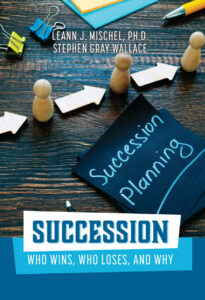 Succession offers “user’s guide” to small and family owned businesses through the stages of planning, employment. and ownership policies, shareholder meetings, family health emergencies, business planning, and alignment/engagement of employees. Covering both the positives and potential pitfalls inherent in the planning and implementation process, Succession represents a realistic roadmap to one of the more difficult periods of business ownership.
Succession offers “user’s guide” to small and family owned businesses through the stages of planning, employment. and ownership policies, shareholder meetings, family health emergencies, business planning, and alignment/engagement of employees. Covering both the positives and potential pitfalls inherent in the planning and implementation process, Succession represents a realistic roadmap to one of the more difficult periods of business ownership.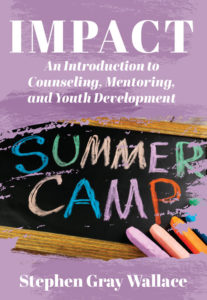 Stephen’s new book, IMPACT – An Introduction to Counseling, Mentoring, and Youth Development, offers insightful commentary on the important role of mentors in the lives of children and teens. While it specifically addresses camp counselors, it is equally relevant for all key youth influencers, including parents, teachers, and coaches. …
Stephen’s new book, IMPACT – An Introduction to Counseling, Mentoring, and Youth Development, offers insightful commentary on the important role of mentors in the lives of children and teens. While it specifically addresses camp counselors, it is equally relevant for all key youth influencers, including parents, teachers, and coaches. … This is an important time in teenagers’ lives — when they will develop driving habits that can be good and bad. Parents need to take an active role in helping teens develop safe driving behaviors because teenagers are involved in more car accidents than any other age group. …
This is an important time in teenagers’ lives — when they will develop driving habits that can be good and bad. Parents need to take an active role in helping teens develop safe driving behaviors because teenagers are involved in more car accidents than any other age group. …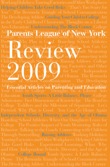 The Parents League Review is an annual literary journal with articles on parenting and education.
The Parents League Review is an annual literary journal with articles on parenting and education.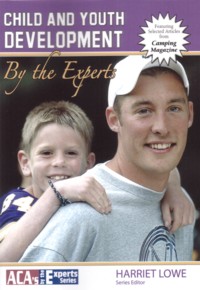 Child and Youth Development features eighteen articles that have been carefully selected from past editions of Camping Magazine, including Rites of Passage: Camp Pays Off in Youth Development, Happiness, Health, and Safety,” written by SADD Chairman and CEO Stephen Wallace. The contributing writers are recognized as authoritative voices in the field of child and youth development. Produced in cooperation with the American Camp Association. …
Child and Youth Development features eighteen articles that have been carefully selected from past editions of Camping Magazine, including Rites of Passage: Camp Pays Off in Youth Development, Happiness, Health, and Safety,” written by SADD Chairman and CEO Stephen Wallace. The contributing writers are recognized as authoritative voices in the field of child and youth development. Produced in cooperation with the American Camp Association. … This new book gives high school students the inside scoop on figuring out who they are and where they want to go by offering teens the kind of comprehensive, down-to-earth advice they need and want. …
This new book gives high school students the inside scoop on figuring out who they are and where they want to go by offering teens the kind of comprehensive, down-to-earth advice they need and want. …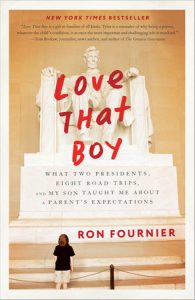 LOVE THAT BOY is a uniquely personal story about the causes and costs of outsized parental expectations. What we want for our children—popularity, normalcy, achievement, genius—and what they truly need—grit, empathy, character—are explored by National Journal’s Ron Fournier, who weaves his extraordinary journey to acceptance around the latest research on childhood development and stories of other loving-but-struggling parents.
LOVE THAT BOY is a uniquely personal story about the causes and costs of outsized parental expectations. What we want for our children—popularity, normalcy, achievement, genius—and what they truly need—grit, empathy, character—are explored by National Journal’s Ron Fournier, who weaves his extraordinary journey to acceptance around the latest research on childhood development and stories of other loving-but-struggling parents. 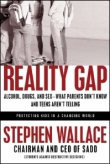 Reality Gap paints an alarming portrait of a modern-day adolescence filled with potentially deadly behaviors carefully hidden from the view of parents and other adults. But it is also a book about hope and inspiration, pointing to the incredibly powerful role that parents and other mentors can play in the lives of young people and highlighting the tremendous contributions that many teens are making to their families, schools, and communities. …
Reality Gap paints an alarming portrait of a modern-day adolescence filled with potentially deadly behaviors carefully hidden from the view of parents and other adults. But it is also a book about hope and inspiration, pointing to the incredibly powerful role that parents and other mentors can play in the lives of young people and highlighting the tremendous contributions that many teens are making to their families, schools, and communities. …